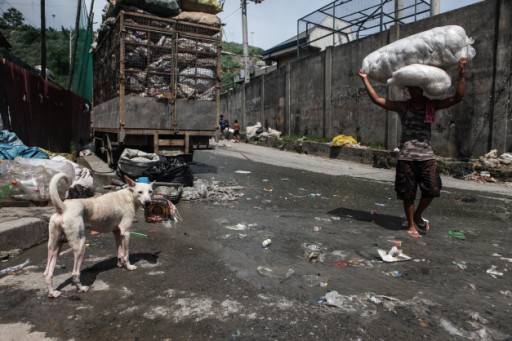
Street dog, Philippines
Credit: Global Alliance for Rabies Control
MANHATTAN, Kan. - September 28, 2021 - (Newswire.com)
The elimination of the dog rabies virus variant in the U.S. is one of the major public health success stories in the last 50 years. On the first inaugural World Rabies Day in 2007, the CDC formally declared the elimination of the dog rabies virus variant in the U.S., the virus responsible for 99% of human rabies cases. But the variant is still found in more than 100 countries, where dog rabies causes more than 59,000 human deaths each year around the world.
Despite safe animal and human vaccines, proven elimination strategies and improved disease surveillance, the global progress achieved over the last decade is now under threat of being lost. Covid-19 has meant countries have had to repurpose staff and suspend rabies control programs and services.
The sheer scale of the public health response to Covid-19 drew federal, state, and local public health resources away from other important public health efforts, including the prevention of the re-importation of dog rabies into the country. Alongside this, authorities saw an upsurge in fraudulent and inadequate rabies vaccination certificates for animals arriving from high-risk countries, partly responding to the increased demand for pets during lockdown. This led to a denial of dog importation permits across the U.S.
While these denials are aimed to protect public safety and ensure that the country remains dog rabies-free, these actions significantly impact the well-being of the dogs. Those denied entry are required to return to the country of origin on the next available flight. Airlines are required to house dogs awaiting return at a facility; however, limited capacity results in dogs being left in cargo warehouses. These warehouses are typically unfit and unsafe environments without the required facilities and infrastructure to ensure the health and well-being of the animals for anything beyond a short-term holding.
The CDC responded with a temporary suspension of importation of dogs from dog rabies-endemic countries to address these animal welfare issues and public health concerns. This is currently impacting an estimated 100,000 dogs.
Today the ongoing temporary ban is the source of a heated debate. Legitimate and law-abiding animal rescue organizations are unable to bring rescue animals into the United States.
We call upon like-minded partners to coordinate efforts and support additional resources to be made available to facilitate the lifting of the temporary suspension. This will fund effective quarantine arrangements so dogs are well cared for and public health concerns are met while preventing the reintroduction of dog rabies into the country.
For further information, please contact:
The Global Alliance for Rabies Control, a 501c3 non-profit organization registered in Manhattan, Kansas.
Press Release Service by Newswire.com
Original Source: Dog Rabies: Why US Citizens Should Remain Informed














